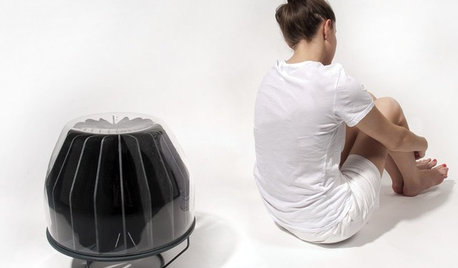Successes in home breeding
dutchbreedert
16 years ago
Related Stories

HOUZZ TOURSMy Houzz: Rescue Success for a Historical Rotterdam Home
A neglected three-story apartment becomes a strikingly modern family home with swinging hammocks and clever storage solutions
Full Story
GREEN DECORATINGA New Breed of Space Heaters Helps You Stay Toasty in Style
Shiver no more with style-conscious heaters that let you turn down the thermostat and snuggle up in warmth
Full Story
ENTERTAININGEasy Hospitality: 3 Basics for Successful Hosting
Make guests comfortable even if resources are tight by getting these entertaining essentials down pat
Full Story
REMODELING GUIDES6 Steps to Planning a Successful Building Project
Put in time on the front end to ensure that your home will match your vision in the end
Full Story
ARCHITECTUREHave It Your Way — What Makes Architecture Successful
Universal appeal doesn't exist in design. The real beauty of any home lies in individualization and imagination
Full Story
ORGANIZINGSmall Steps to Organizing Success
Take care of bite-size projects, and your home's big picture will be an organized dream before you know it
Full Story
LIFEFall Planning for a Successful Big Spring Party
Get started now on assessing, completing home projects and cleaning to keep party stress and effort to a minimum come spring
Full Story
INSIDE HOUZZTell Us Your Houzz Success Story
Have you used the site to connect with professionals, browse photos and more to make your project run smoother? We want to hear your story
Full Story
SALVAGEDIY: Secrets of Successful Upcycling
Learn how to find and customize salvaged pieces and materials to create one-of-a-kind furniture and accessories you love
Full Story
LANDSCAPE DESIGNSecrets of a Successful Water Garden
Relax. Having a water garden is much easier once you understand the basics
Full Story





maineman
hortist
Related Professionals
Holly Springs Landscape Architects & Landscape Designers · Saint Louis Park Landscape Architects & Landscape Designers · Williamsburg Landscape Contractors · Maple Valley Landscape Contractors · Arden-Arcade Landscape Contractors · Dunwoody Landscape Contractors · Muttontown Landscape Contractors · Homestead Carpenters · Merced Carpenters · Norwood Carpenters · Coral Gables Fence Contractors · Markham Fence Contractors · Oldsmar Fence Contractors · Silver Spring Fence Contractors · Centreville Fence Contractorsmephisto
zen_man
keking
boizeau